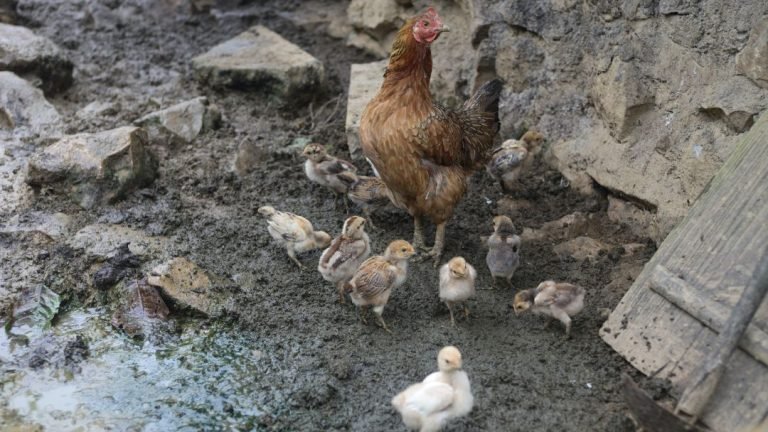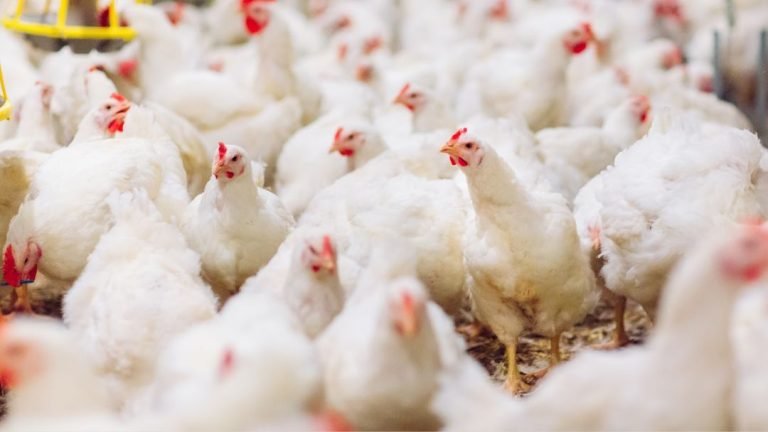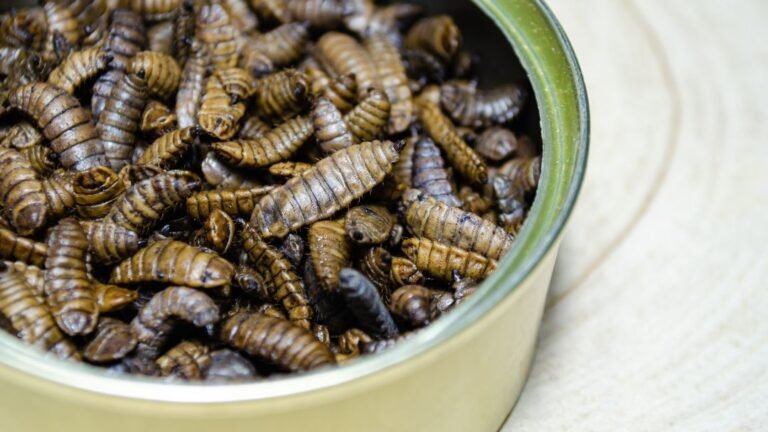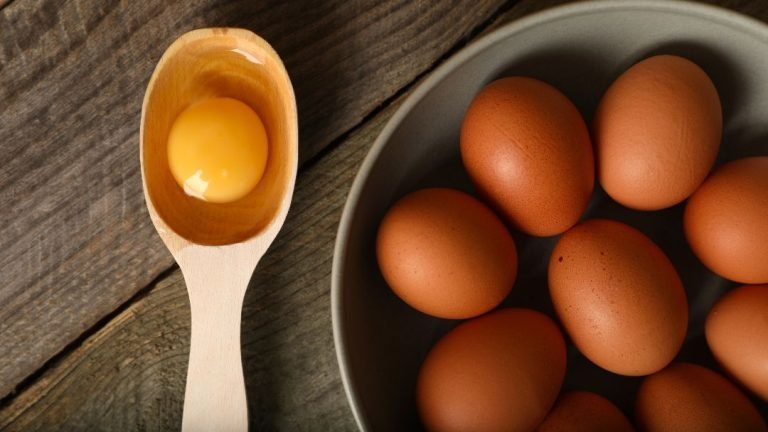Most chicken owners feed their birds commercial-based dry feed based on their age. But have you heard of fermented chicken feed? Does your neighbor or friend feed fermented feed to their chickens? You might be wondering why feed chickens fermented feed, right?
Chicken fermented feed is beneficial for flocks with beneficial bacteria or prebiotics in their guts and reduces pathogens. This special food is highly nutritious. Due to its nutritional density, chickens will need to eat less. This will cause less food waste and save your feeding cost.
What Is Fermented Chicken Feed?
Fermented chicken feed is moistened or wet mashed feed. All the components of chicken feed will go through microbial growth and enzymatic action to be converted into fermented food.
Fermented chicken feed is enriched with healthful probiotics or live microorganisms. It has no or minimal harmful bacteria. Instead, the fermented feed has beneficial microbes.
This type of chicken feed has a long shelf life and a higher nutritional value.
Due to the degradation of oxalates and phytates, it can ensure 90% to 100% bioavailability of calcium, iron, and phosphorous.
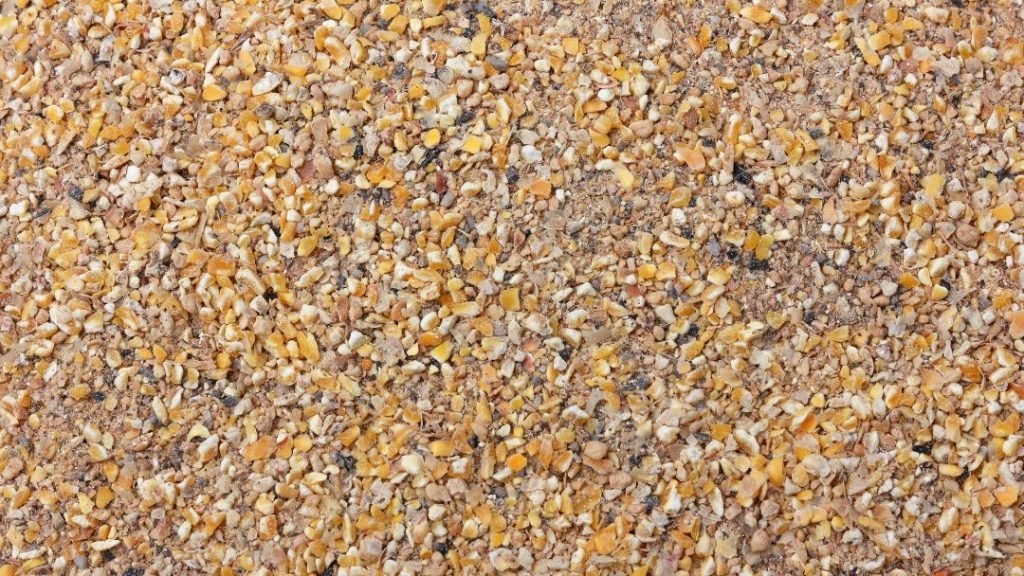
How Does Fermented Chicken Feed Work?
During the fermenting process, it affects both major and minor components of chicken feed.
Once you keep the feed inside the container, the presence of Phytic acid and enzyme inhibitors decreases slowly. These food inhibitors prevent the feed from being bioavailable.
When fermenting process starts, lactic acid production will increase. It is called the metabolic process. Lactic acid will convert glucose or other six-carbon sugars into cellular energy.
Fermenting chicken feed can take anywhere from 7 days to 21 days, depending on the ingredients, temperature, and other factors.
Once the chicken food is fermented, pathogenic microbiota or other spoilage won’t grow easily due to the preservative effect.
Why Feed Chickens Fermented Feed?
Chicken-fermented feed offers several health benefits. The followings are the primary reasons you should serve this special food to your feathered friends.
01. More Beneficial Bacteria
Fermented chicken feed can help chickens to multiply beneficial bacteria or prebiotics in their guts.
This beneficial bacteria can contribute to producing anti-inflammatory factors and pain-relieving compounds as well as improving the immune system.
They also play a crucial role in supplying necessary nutrients and promoting angiogenesis and enteric nerve function.
02. Reduction Of Pathogens
Do you know pathogens are responsible for producing toxins during replication? They can damage cells or tissues in chickens’ bodies.
Pathogens limit the growth of microorganisms. Or, they can even kill them.
A fermented feed can significantly decrease pathogens in a chicken’s digestive system.
It will diverse bacteria and cure chickens of various common diseases.
03. More Readily Available Protein
Do you know fermented chicken feed has more readily available protein?
Chickens will receive more protein content. This will chooks fuel their energy.
Their body tissues will have received more oxygen, stimulating the growth of new blood vessels.
Besides, increased readily available protein will help birds to fight off infection by creating antibodies.
04. Less Waste
Fermented chicken feed produces less waste. It creates more readily available nutrients. Hence, chickens’ feed requirements will decrease.
Chooks will love it more as it has more filling. You will save a good amount of money because birds will not consume as much as they usually consume dry food.
Flocks will feel more contented after eating the feed. Hence, they will eat less frequently. This will help you save costs.
05. Higher Moisture Content
A fermented chicken feed contains a significant amount of moisture content. But ever wondered why they have moisture content?
This increases the food’s color, texture, taste, and shape. More importantly, the overall shelf life of the food increases.
It remains in a fresh condition for a prolonged time. Bacterial contamination is less likely to occur. Hence, the food preserves its quality for a long time.
Chickens love to eat fermented feed as it has a new flavor profile. Both young and adult chickens can consume them.
06. Better Digestibility
Do you know that fermented chicken feed is easy to absorb and digest for chooks?
When the fermenting process starts, it breaks downs some natural sugars and starches by creating enzymes.
Chickens’ digestive system will have to work less hard to process the food as big molecules are already broken down.
Flocks who have digestive issues can eat fermented feed regularly. This will help them restore their gut bacteria to normal.
Can All Ages Of Chickens Eat Fermented Feed?
Fermented feed is suitable for all ages of chickens, including baby chicks, teenage chickens, adult chickens, and older chickens.
Why Is Fermented Feed Good For Baby Chicks?
For example, fermented chicken feed has more nutritionally dense ingredients. Baby chicks will receive more nutrition from regular quantities. You will have to feed them less.
Besides, it contains many healthy and beneficial bacteria, such as apple cider vinegar.
This can help baby chicks to develop functional and healthy gut flora.
They are less likely to experience chick pasting up, where droppings stick to a chick’s vent area.
Why Is Fermented Feed Good For Laying Hens?
This particular food is also a good choice for laying birds. It can help them produce heavier eggs with thicker shells. The overall yearly egg production will increase.
Laying eggs involve burning a good amount of energy. Fermented chicken feed will give female chickens an instant boost. They won’t feel weaker after laying an egg.
Are There Any Cons Of Chicken Fermented Feed?
You have already learned why to feed chicken ferment feed to chooks.
But do you know it has some disadvantages too? The followings are the common cons of fermented chicken feed.
01. Mold Growth
One of the common risks associated with fermented feed is mold or yeast growth. This mainly occurs when the food is exposed to oxygen.
However, an imbalanced salt ratio can also cause this problem. The simple rule is to add 6 tbsp of salt for every half gallon of water.
In addition, if the temperature is more than 72 degrees Fahrenheit, it can also invite mold growth. Using dirty containers and Utensils can also attract mold growth.
If you want to make fermented chicken feed at home, you must follow the proper fermenting technique.
02. Less Reliable Store-Bought Items
Compared to homemade fermented feed, store-bought options have higher non-fermented sugar.
Also, they may contain an excessive amount of salt compared to water. A good number of manufacturing companies follow this approach to increase the shelf-life of fermented feed.
Unfortunately, it causes an increment of harmful bacteria and a reduction in nutritional value.
Besides, they may have many harmful substances that might not be mentioned on the product label. Feeding the food, in the long run, can cause significant damage.
03. A Time-Consuming Process
Feeding fermented feed to chickens may not be an easygoing choice for busy chicken owners.
Creating fermented feed takes around 7 days to 21 days, depending on your fermenting approach and other factors.
If you want to feed milder flavor and slightly fermented feed to your chickens, it will take around seven days.
But making stronger fermented feed will take anywhere between 14 to 21 days.
04. Expensive Option
Fermented chicken feed is at least 10% more expensive than regular dry feed. After all, the manufacturer has to go through a long process to make it.
Even if you make it at home, the making process will still be costly. You have to use high-quality ingredients and specialized equipment.
If you follow an incorrect fermenting technique, all the feed will not be suitable for eating. You will have no option but to toss them into the bin. This will add extra cost.
How Much Chicken Fermented Feed To Serve Each Chicken?
Do you know chickens eat around 40% to 50% more fermented feed than regular dry feed? Ever wondered why chooks don’t eat too much?
Undoubtedly, the food is palatable and tasty. But it has a thicker course of nutrition along with higher moisture content.
Hence, they feel content and full after eating a small amount. But how much chicken is fermented to feed per chicken?
You can follow the below chart to serve a particular amount of feed daily.
However, it can be more or less depending on the chicken breed, temperature, activity level, and other factors.
| Life stage | Chicken’s age | Ideal Dry Feed Amount | Ideal Fermented Feed Amount |
| Baby chicks | 0 to 8 weeks | 30 grams to 60 grams daily | 20 grams to 40 grams daily |
| Growing chickens | 8 to 20 weeks | 70 grams to 110 grams daily | 50 grams to 80 grams daily |
| Mature chickens | 21+ weeks | 100 to 150 grams daily | 90 grams to 120 grams daily |
What Food To Ferment For Chickens?
You can ferment commercially available dry chicken feed, such as grower feed, all-purpose poultry feed, layer feed, etc.
Natural foods are also suitable for fermentation, such as whole grains, seeds, flax seeds, kelp, fish meal, dried alfalfa, vegetables, fruits, etc.
It is best to create a balanced diet profile while fermenting natural items. If you don’t have too much time, buy a commercialized option. But it should be safe and reliable.
Tips On Homemade Fermented Chicken Feed
- Add various types of natural items such as seeds, oats, grains, and other healthy ingredients to make it nutritionally balanced.
- Use water-lock glass containers, mason jars, canning jars, or “Bernadin” type jars for fermenting chicken feed.
- If you want to use plastic-based containers, make sure it is BPA-free and food-grade.
- Use Spring water for fermentation as it contains minerals. Avoid choosing any water that has contaminants or additives (like chloramine).
- Make sure to stir the mixture at least twice a day. Stirring 3-4 times is a good practice to reduce potential yeast stress and blow off carbon dioxide.
- Make sure to store the container in a cool, dark place during the fermenting session. Direct sunlight should not be avoided. Maintain 32°F to 50°F temperature.
- Use both cold and boiling water in the container to start the fermenting process. The cold and hot water ratio should be 19:3.
- Avoid feeding any fermented feed if you notice any mold growth. Put them inside the dustbin.
Summing UP
Are you still wondering why feed chickens fermented feed? I have discussed all the valuable benefits Chooks will get from the regular consumption of fermented food.
However, not members of your chicken coop will like it. It is best to make a small amount initially to figure out how many birds like it and how many dislike it.
If you see a positive response, you can make it further. Don’t make too much amount at a time, as chicken feed spoils faster. It is best to make only 4-5 days of feed at a time.


